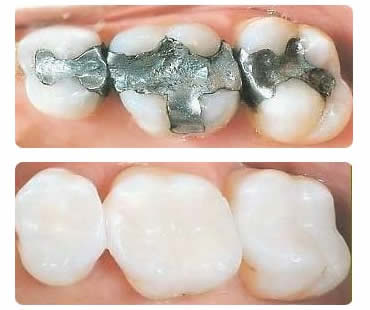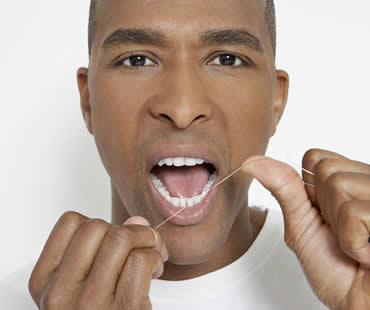
Aug 2, 2019 | General Dentistry, Blog, Dental Topics 1
When you visit the dentist, you often see other professionals in the office. Usually, the dentist will have a hygienist and a dental assistant as part of the team. While their roles aren’t the same as the dentist’s job, these individuals do play an important part in your dental care. Understanding what the hygienist and dental assistant do can make you feel more comfortable at your dental appointments.
The Dental Assistant
To become a dental assistant, an individual usually completes course work through a community college or technical school. This training will provide hands-on experience before the dental assistant works in an actual dental practice. A dental assistant can serve many functions, including assisting the dentist during treatment, taking impressions, sterilizing instruments, and making temporary crowns for patients. Dental assistants also welcome patients and help them feel comfortable in the dental office.
The Dental Hygienist
At a minimum, a dental hygienist must earn an associate’s degree, though many hygienists choose to obtain four-year degrees. Additionally, hygienists must be licensed in the states where they practice. The dental hygienist is generally responsible for taking patient x-rays, performing an initial periodontal assessment, and cleaning your teeth. During your appointment, the hygienist will also offer tips on home hygiene to help you maximize your oral car routine. A dental hygienist may also perform deep cleanings for gum disease, apply fluoride, remove sutures, and administer local anesthetic.

Feb 8, 2019 | General Dentistry, Blog, Dental Topics 1
Your body is a little bit like a puzzle. It gives you clues to help you figure out what’s going on within your body. Did you know your mouth can give you hints about things that may be happening elsewhere in your body? Here’s a list of some of the signs your mouth can give you to pay attention to certain other aspects of your health.
Worn teeth and headache
If your teeth are showing extensive wear, you may be grinding your teeth. This would be even a stronger possibility if you’re also experiencing regular headaches, which can be caused by the muscle tension related to teeth grinding. This condition also indicates that you are likely under too much stress, and that you are unconsciously coping with it by grinding your teeth.
Gums covering teeth
If your gums begin to grow over your teeth and you are on medication, it may mean that your medication is at fault. Some medicines can cause your gums to overgrow, and the dosage needs to be adjusted.
Mouth sores
An open sore in your mouth that doesn’t go away in a couple of weeks can be an indicator of oral cancer. Numbness and unexplained bleeding in your mouth are other signs. Smokers and people over age 60 are at the most risk, but that doesn’t mean it doesn’t affect others too. See your dentist to make sure all is okay.
Cracked teeth
If your teeth begin to crack or wear extensively, you may have gastroesophogeal reflux disease (GERD). It’s a digestive disease that allows stomach acid to flow back into your food pipe and mouth. This acid can cause your teeth to deteriorate. Additional signs of GERD are acid reflux, heartburn, and dry mouth.
Unclean dentures
If you wear dentures, make sure you remove and clean them regularly. Inhaling food debris from your dentures that makes its way to your lungs can lead to pneum

Apr 12, 2019 | General Dentistry, Blog, Dental Topics 1
At one time, metal fillings were the only choice to repair tooth decay. Now, many dentists have switched to composite resin fillings, which match natural-tooth color so they don’t compromise the appearance of your smile. Tooth-colored fillings have gained popularity, and many dentists only offer this option. In recent years, there has been a strong push to eliminate amalgam fillings all together.
Amalgam fillings are made of several metals, with up to a 50 percent composition of mercury. It is widely known that mercury is toxic to the body. Some of the concern about amalgam fillings is the affect mercury has on the body, including:
• Causing damage to the kidneys
• Contributing to infertility
• Impacting the nervous system
• Interfering with the function of the thyroid and pituitary glands
• Posing unknown risk to a fetus
• Weakening the immune system
Because each person is different, you may have no reaction to the amalgam fillings. Over time, though, these restorations may change shape or crack, which can cause them to leak. If the fillings don’t hold up, the area may become susceptible to additional damage or decay.
At your checkup, have the dentist evaluate any old fillings to make sure they are still in good condition. You can also discuss the benefits of replacing amalgams with composite fillings. The newer restorations blend with your natural tooth coloring and require less removal of health tooth structure, which allows for a more conservative repair.
If you need a dentist in Conyers contact us today

Mar 26, 2021 | General Dentistry, Blog, Dental Topics 1
What you eat and drink can affect your oral health. A balanced diet will boost your body’s natural immune system, helping to lower your risks for oral problems. There are also certain foods and drinks that you should avoid in order to pave the way for healthy gums and strong teeth. Read on to learn how to ensure that your smile is safe and strong.
Cut down on snacks
Try to limit snacking between meals. The more often you eat, the more bacteria is stimulated and more acid is created. It is especially harmful to snack on sweet or starchy foods, which can harm your teeth and gums more quickly.
Limit sugar
Avoid foods and drinks that are high in sugar. It can stick to your teeth and if not removed promptly and thoroughly, can lead to tooth decay.
Watch what you drink
Drink plenty of water, and avoid sodas and fruit juices. Both of these can be sugary and acidic, which can harm your tooth enamel and cause decay.
Maintain a healthy diet
Try to eat a balanced diet consisting of the five major food groups. A well-balanced diet provides the vitamins, minerals, and other nutrients that your teeth and gums need. Fresh vegetables and fruits, and foods rich in calcium, are good choices for your oral health.
Practice good oral hygiene
Contact our Conyers dental office to learn about good dental hygiene techniques that will help you prevent tooth decay and gum disease. Brush your teeth at least twice a day, floss daily, and see your dentist for regular checkups.
We look forward to seeing you in our Conyers dental office

Jul 6, 2023 | General Dentistry, Blog, Dental Topics 1
Cleaning between your teeth and along your gums with dental floss is just as important as using your toothbrush. Although many people complain about flossing or completely avoid doing it, there should be no excuse for neglecting this part of your dental hygiene routine.
Flossing your teeth allows you to get rid of food particles and plaque that is caught between your teeth. It is able to reach areas that your toothbrush can’t. Therefore, flossing plays a key role in preventing tooth decay, gum disease, and bad breath.
You should floss your teeth at least once every day, using a gentle touch so you don’t damage your gums. You can use waxed or unwaxed dental floss, depending upon your preference and which one works best for you. Interdental cleaning aids like picks and sticks may also be carefully used, as well as floss holders. These tools are especially helpful for those with arthritis and vision problems.
Another item that may help remove trapped food debris is a water spray tool called an oral irrigator, although it shouldn’t replace flossing. The same is true for mouthwash, which may be used to help rinse away germs and temporarily freshen breath. You can add these items to your hygiene routine, but giving up flossing should not be an option. Using dental floss is the very best way to attack food particles and plaque so that you have the greatest chance for a healthy mouth.
Dr. Byreddy is a family and cosmetic dentist in Conyers

Jun 18, 2021 | General Dentistry, Blog, Dental Topics 1
Why wait until you have a toothache, bleeding gums, bad breath, or other problems to decide it’s time to start focusing on your oral health? Your mouth and your whole body can benefit from maintaining good oral health. Here is some simple advice that will help you along the path to a healthy smile.
Brushing and flossing
Tooth decay and gum disease are both preventable with proper brushing and flossing. Brush with a soft-bristled toothbrush and fluoride toothpaste, using a circular motion. It’s best to brush after every meal, but twice a day should be the minimum. Gently floss your teeth daily to remove food particles and bacteria between your teeth.
Eating right
Focusing on eating foods from each food group will aid your oral health in addition to your overall health. Not getting essential nutrients in your diet increases your risk of gum disease, and also makes it more difficult for your body to resist infection. Eat low fat dairy items, lean proteins, vegetables, fruits, and whole grains. Look for foods low in sugar, which can lead to tooth decay. Avoid snacking too much during the day when you aren’t going to brush your teeth afterwards, and drink plenty of water throughout the day.
Seeing your dentist
Visit your dentist at least twice a year for checkups. During these appointments, your dentist will look for problems and professionally clean your teeth. Delays in treatment of some conditions can cause them to worsen to the point that treatment may be more painful, difficult, or costly. Your dentist will help you keep your teeth and gums healthy so that you can keep smiling as long as possible.
If you live in the Conyers area contact us today








